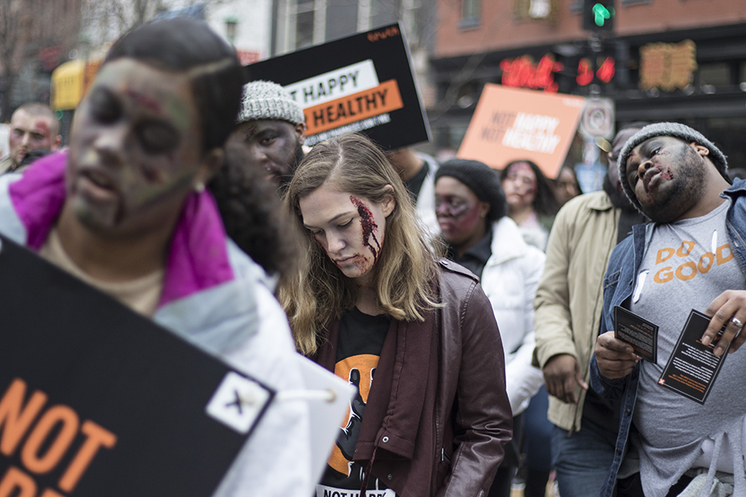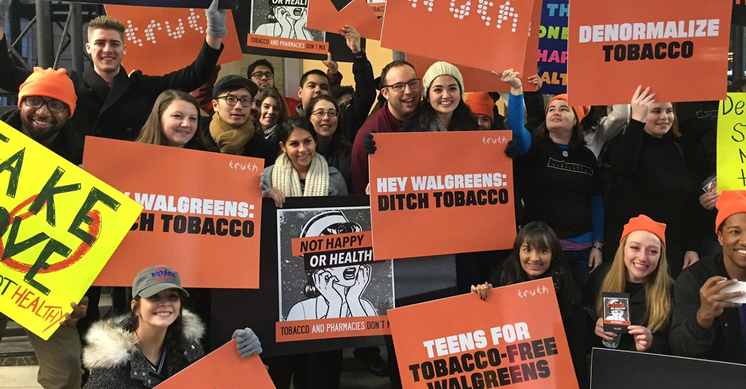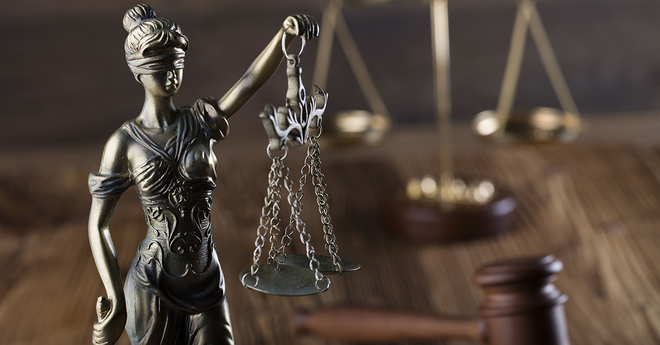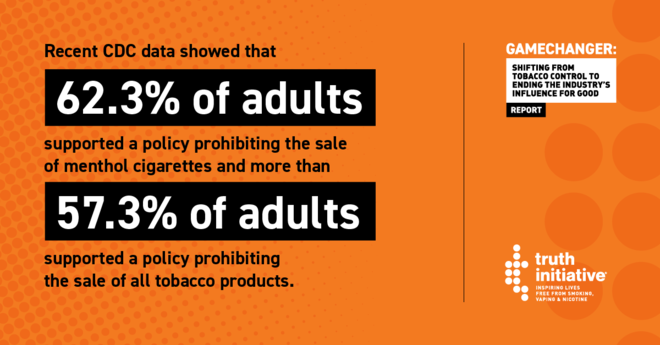Q&A: How youth activists are pressuring Walgreens to stop selling tobacco
In January, Truth Initiative® youth activists Maria Duenas, Katelynd Todd and Dan Fitzgerald confronted the Walgreens board of directors at the company’s shareholders meeting in Scottsdale, Arizona about an important issue: why does the nation’s second largest pharmacy chain still sell tobacco?
Their presence at the annual meeting was just the latest in a series of activism efforts to get Walgreens to remove tobacco from its shelves. Truth Initiative has repeatedly called on Walgreens to protect its customers and stop selling tobacco.

A week before this year’s shareholders meeting, truth® organized a zombie-themed demonstration outside a Walgreens store in downtown Washington, D.C. Truth Initiative youth activists were also at last year’s Walgreens shareholders meeting in New York City, while young people from across the country rallied outside and a truth petition collected more than 5,000 signatures.

Walgreens continues to sell tobacco products despite large support for the company to remove them from its shelves: 73 percent of Walgreens shoppers say the company should ban tobacco products and 66 percent of U.S. adults favor a ban on tobacco products in pharmacy stores, including nearly half of smokers. Additionally, a group of Walgreens shareholders called on the company to review tobacco sales in its pharmacies.
We spoke with Duenas, Todd and Fitzgerald — current and former Truth Initiative youth activism fellows — about their visit to this year’s shareholders meeting and why getting rid of tobacco in pharmacies is important.
Q: How do different types of activism — from organizing a zombie protest to attending a shareholders meeting — help in the fight against tobacco?
Todd: They’re all raising awareness in different pockets of people in the U.S. I think that the zombie protest hit people who aren’t normally thinking about corporate decision-making. A lot of the people who were stopping and asking what we were doing were young people. I think that’s important for tobacco use prevention, but it’s also important because these are future leaders.
Whenever we show up to something like a shareholders meeting, the demographics of the people are on a complete opposite end of the spectrum from the type of people that were interested in us on the street for the zombie protest. It’s important that we stay active in all these types of ways, because all these different types of people play a role in tobacco use — whether it’s providing people with the products, marketing the products or deciding to use the products.
Q: Your questions to the Walgreens board of directors focused on the company contradicting its stated values of promoting health and well-being, and the large public support for removing tobacco from Walgreens stores. Why was it important for you to atten
Fitzgerald: With pharmacies in general, they’re selling health and wellness — and we know, more than anybody, that tobacco just doesn’t fit that scene. I was there not only on behalf of myself, as an activist and as a customer, but also on behalf of the several thousands of youth and young adults around the country who are in support of what we’re doing. I think making waves is one of the best ways to start ultimately making change.
Q: Why should this activism continue?
Duenas: Persistence is necessary to continuously keep this issue at the forefront of people's minds. No effort made toward the cause goes without impact, so I feel like if we’re persistent with this annually, we can get more of a response that we want.
This issue has been around for generations, and if not for the efforts of activists it'll continue to be a deadly problem for generations to come. I know what we’re doing is going to benefit everybody in the long run.
To learn more about tobacco sales in pharmacies, read “it’s time for pharmacies to stop selling tobacco.”



